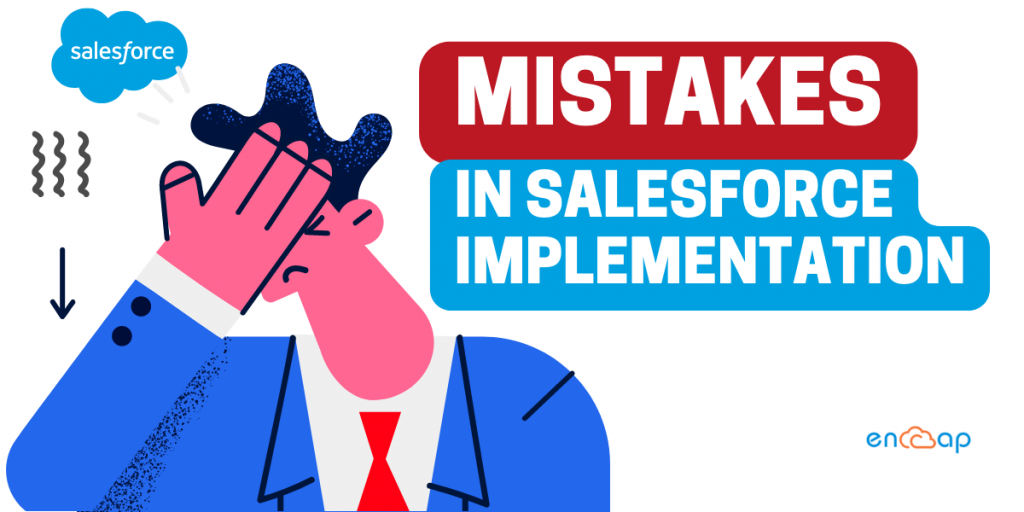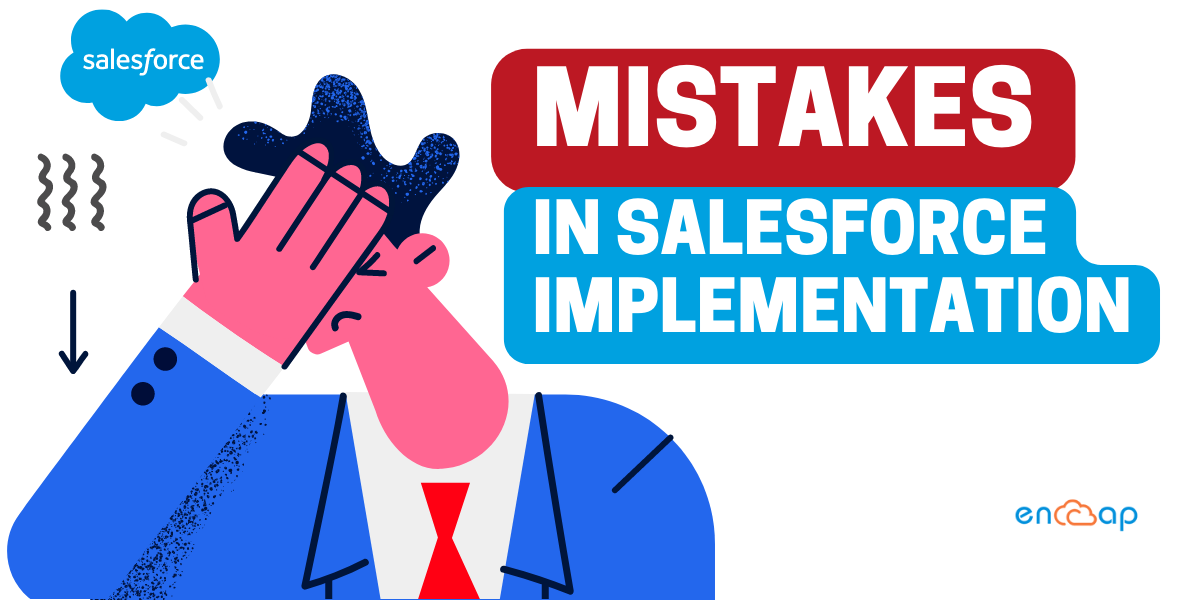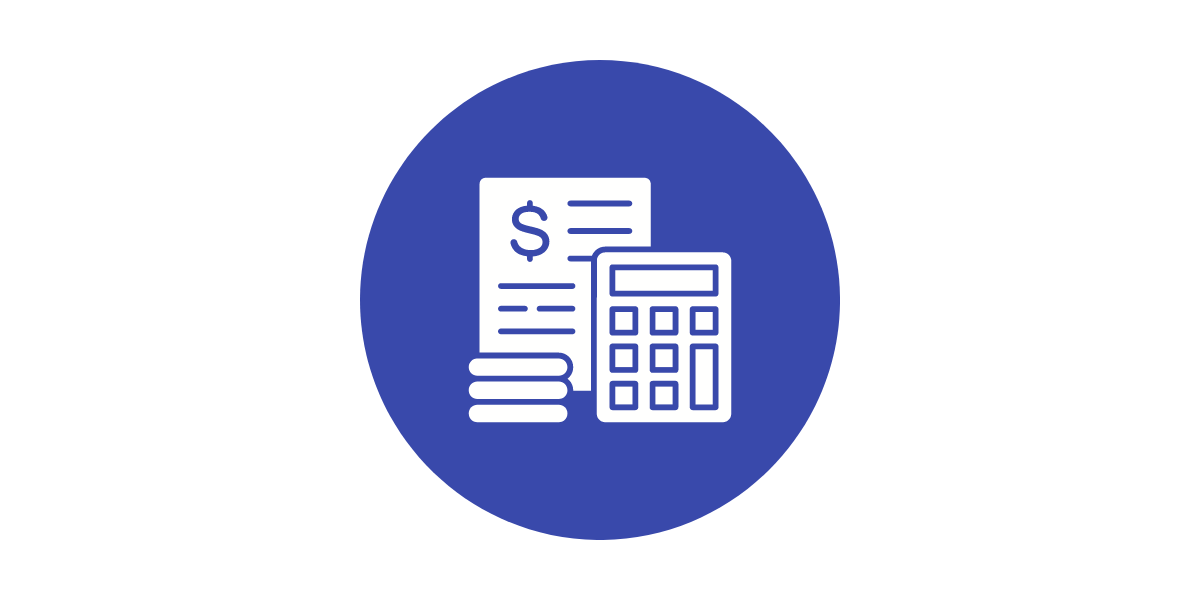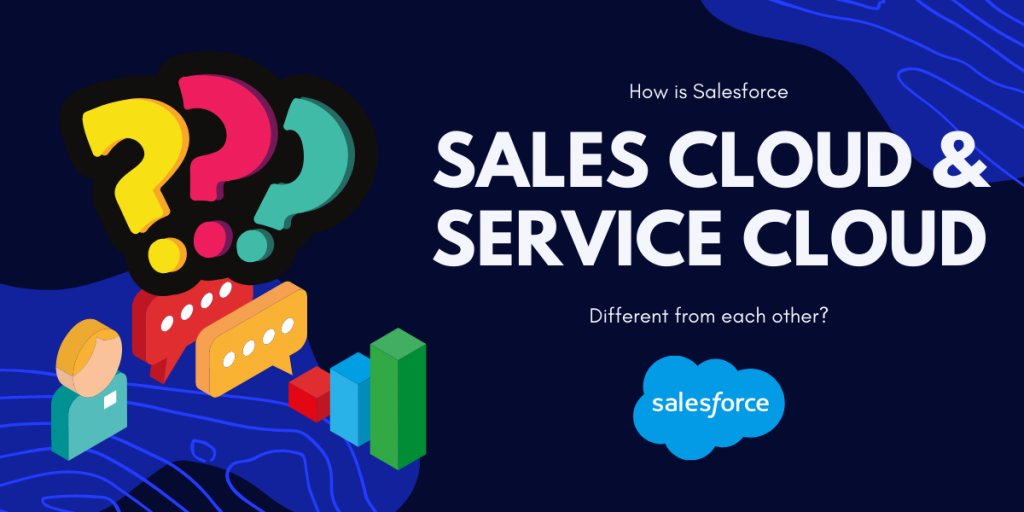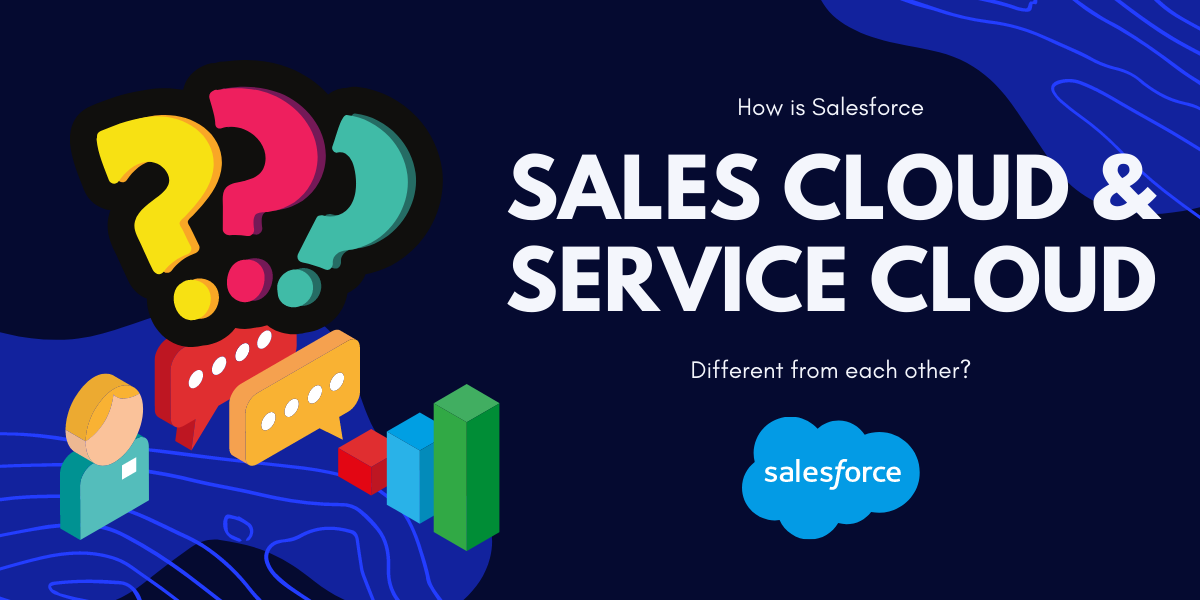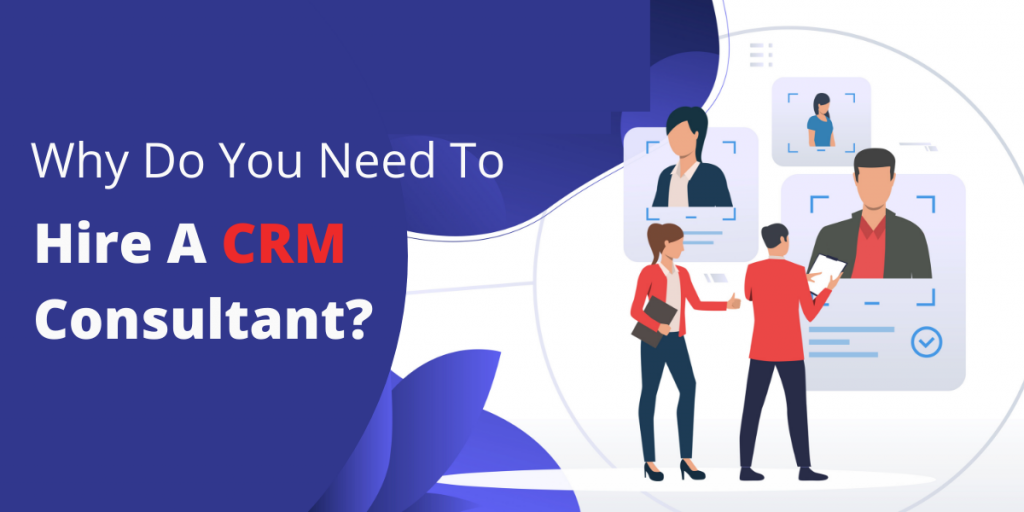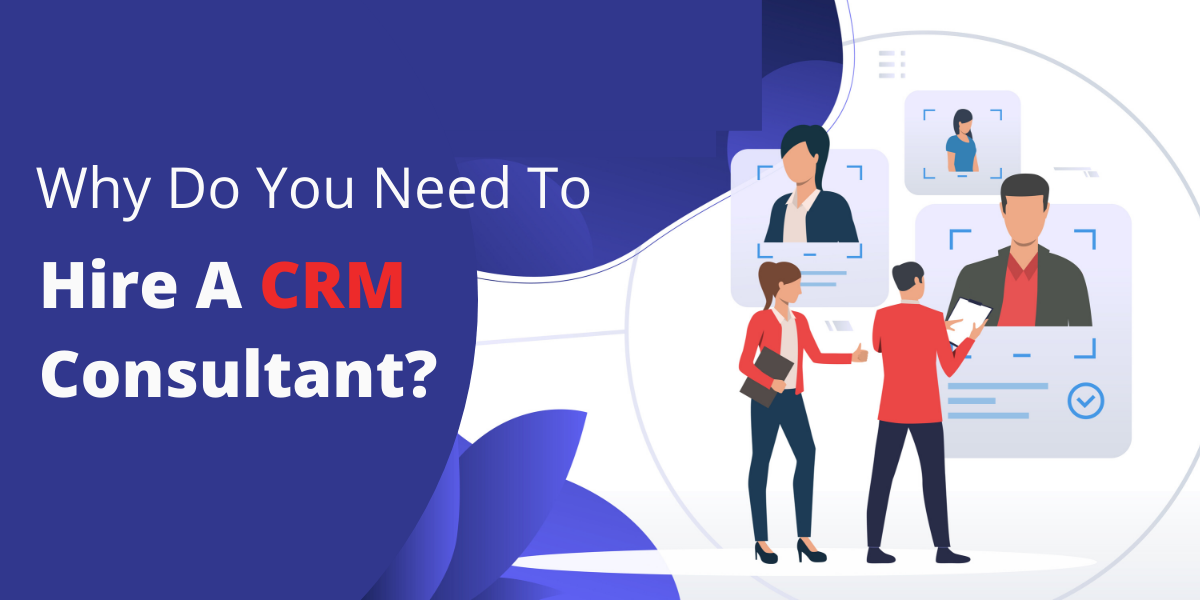8 Common Salesforce Implementation Mistakes
Salesforce is one of the most effective tools that comes with the potential to revamp and clarify a business process. However, this does not mean just ending up purchasing the software because one has to implement the software correctly as well. Salesforce integration requires the support of experienced consultants.
By bringing Salesforce into your business, you can easily avoid common mistakes that otherwise cost you more time, money, and sanity. Hence, salesforce implementation must be done strategically. To make sure that you avoid the Salesforce implementation mistakes, you must take guidance at each step so that you can get a clean and accessible interface that extends across industries and companies of different sizes.
With so many companies using Salesforce, it is not amusing to know that some organizations fight constantly to achieve the results that they need in a fixed time frame. The difficulty of implementation is dependent on the company size, business needs, and industry types. Salesforce implementation is a delicate process and must be handled by someone who is an experienced Salesforce consultant.
Hiring Salesforce consulting services helps to avoid common mistakes that can happen otherwise while the Salesforce implementation goes on.
1. Not Assessing Cost of Implementation
It is not a big deal for a company to get ahead of itself when it comes to implementing new technology. Most companies commit to a solution and are excited to get going for achieving game-changing business outcomes with the new Salesforce integration.
The anticipation to have an old system changed with a new functionality adds support efficiency and accuracy that can get everyone’s hopes high. That said, a mistake that many teams make is that they experience high levels of stress when it comes to assessing the cost of a solution or functionality while breezing over the process.
The costs come in many different ways when it comes to Salesforce implementations and they include budget, time, and complexity. When organizations do not seek outside support, they lack clarity around the real costs of an implementation that can affect a project’s success.
The timelines and processes must be developed way ahead of time when the implementation takes place so that stress and unforeseen costs can be avoided. Whether they are in your budget, timeline, or project success, all costs must be avoided.
2. Not Choosing the Right Implementation Partner
Often, organizations realize that Salesforce implementation cannot be done internally. This is even when the company has been using an old version of it and wishes to install an upgrade. When a company decides to make a purchase or even add something to the Salesforce CRM, it is important that the work is done by experts for getting the desired results.
The bidding process for finding the right partner and mostly a Salesforce consulting service can often be lengthy and does not even always result in the right choice in case the details are not focused on or the sales pitch is not accepted.
Major problems can play out when it comes to Salesforce implementation. Hence choosing the wrong partner can add to the trouble. Make sure that the consultant that you choose is capable of assisting and leading. The developers must be highly skilled and familiar with the SDFC or they should be learning it.
As important contributors to a successful implementation, it is important the developers and consultants are immensely skilled in the implementation process and have the skills needed to guide a Salesforce initiative. Make sure that you conduct a detailed RFP process that is a lot more of a negotiation than just a presentation.
In addition, also ensure that innovation is led internally and created by the partner while not seeking any input or guidance. While choosing the right partner, you should know that the price is not a good reflection of skill while also collecting references and success stories from organizations that have worked with your partner.
You can also test the Salesforce consultant on their ability to commit to the timelines. Build a relationship of trust and respect for maintaining open communication. Also, focus on proposing contractual guarantees for work that is completed to a standard.
3. Complicating the Requirements
Jumping into Salesforce integration can be a very interesting process but it is important to remember that it is also full of demands. Salesforce offers immense benefits but it still has its limitations. There are so many times when companies require customizations or even extend complicated requests that Salesforce cannot deliver.
Customizations and requests can often lead to serious problems during implementation and user adoption. One of the major complaints during the implementation process is the need for necessary customizations. Since customizations need expert knowledge, one must be able to communicate the amended costs.
The bugs that do not get fixed as a result of customizations can impact user buy-in as most users struggle to use the system just as intended. Migrating the customizations from a previous CRM can generate limited functionalities. This is something that must be communicated during the planning phase and reflected on the scope and timeline of Salesforce implementation.
Often, complicated requirements and customizations are not so simple to avoid but this is not something that always indicates Salesforce implementation as a disaster. However, it definitely indicates the need for a strong business liaison or analyst who can advise appropriately.
4. Ignoring Integration and Data Migration
In Salesforce implementations, many new features come to the forefront of a team’s focus while leaving data migration and integrations on one side. The truth is that if data integration and migration are not prioritized from the beginning then they can get left behind while causing delays.
Integration with different running systems or platforms can be tricky and must be approached with knowledge, experience, and foresight. The integration specialists are necessary and they should be considered during early assessments only.
In addition, data migration must also be considered in the earlier stages when it comes to Salesforce implementation. Without any doubt, there will be a varied quality of data and the duplication of data should be addressed way before implementation for achieving the best results. To make this process a success, one person or a team must be responsible for data maintenance.
5. No Internal Buy-In

At the time you are getting into the Salesforce integration, it is often easy to overlook an important element and that is users. Many companies make the Salesforce implementation mistake of keeping the users at the end and lacking in substance to generate the internal buy-in to the new or upgraded platform.
User adoption is really important for the success of Salesforce implementation and must be taken seriously from the very beginning. A dedicated effort should be made to promote internal buy-ins by identifying the internal leaders who can easily promote Salesforce and drive the go-live results.
You must also seek user motivations, needs, and other struggles needed for incorporating core features into the project plan. It is also important to measure adoption among the user’s past implementation while conducting key user training. A big concern with Salesforce implementation is the usage of the platform among company users.
In case the system fails to work as it was intended or is full of errors then it can be a real problem for user adoption. You must ensure that users are a core consideration all through implementation so that the best results can be closed out.
Given the challenges of Salesforce implementation, the work must be planned well. With the rising demand for different Salesforce specializations, there are many end-users who seek the support of experts. Companies offering experienced Salesforce consulting services are able to assist organizations, avoid mistakes, and drive successful implementations while finding exciting work at leading organizations.
6. Data Clean-Up

Another one of the Salesforce implementation mistakes is forgetting the data clean-up. Many times, the only focus is on new features while leaving integration and data clean-up as a low-priority activity. In reality, this may have the potential of causing delays in the implementation process.
Including corrupt data can often lead to incorrect insights and even wrong forecasts. This has the potential of creating inefficiencies in the process of sales and eventually lead to the underperformance of the sales team.
That said, working with a Salesforce expert can always ensure data clean-up and data auditing right before Salesforce implementation is achieved at par.
7. Lack of Training
A successful Salesforce implementation process is dependent on user adoption. Salesforce is a powerful platform but the users cannot capitalize on features if they do not know how to use the system efficiently. Users must gain a good understanding of all features.
Insufficient Salesforce knowledge is like no knowledge. It results in the underutilization of the platform while learning the successful techniques leads to satisfaction and rewards. Salesforce CRM may look like an easy platform to many but the truth is that there are some features that are challenging for the team members to operate.
Hence, it is necessary that adequate arrangements are made to train the employees so that make the best use of the Salesforce CRM. In case you make the mistake of ignoring the training aspect and assuming that the employees will get familiar with the platform once the implementation is done then you are making a mistake.
The truth is that the team members need their own time when it comes to getting comfortable with the features of the platform. This is common when you are migrating from one version of Salesforce to another one. Make sure that you offer accurate theoretical and practical training to the sales team while handling the Salesforce CRM.
8. Lack of Focus

You must know the answer to why you wish to implement Salesforce because if you are unclear about that then your ability to pick the right implementation partner will be clouded. You will not even have the right answers to the questions about the main factors or what you want from your CRM in the future.
If you want to have an easy time convincing your executive team to give you the budget for a tool then you must be sure about why you want to use it in the first place. The clearer you are about “Why?”, the easier it will be to gain maximum benefits out of Salesforce.
Conclusion
Taking the decision to invest in Salesforce is a big step for a business. You must ensure that you have proper knowledge along with the right support, data, and training needed to benefit from the usage of a tool.
At Encaptechno, we offer expert Salesforce implementation services that enable our customers to use CRM well. These implementation services can help you in making sure that there are no mistakes made and that you get the maximum benefits out of the implementation process.
8 Common Salesforce Implementation Mistakes Read More »
Salesforce
